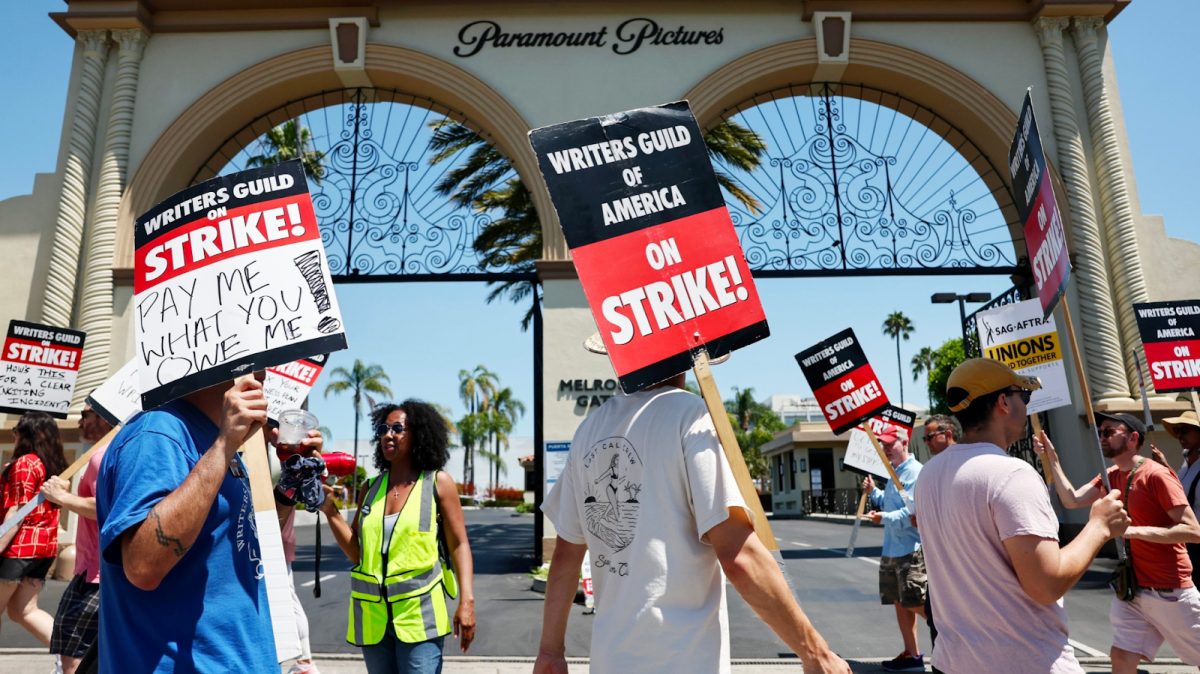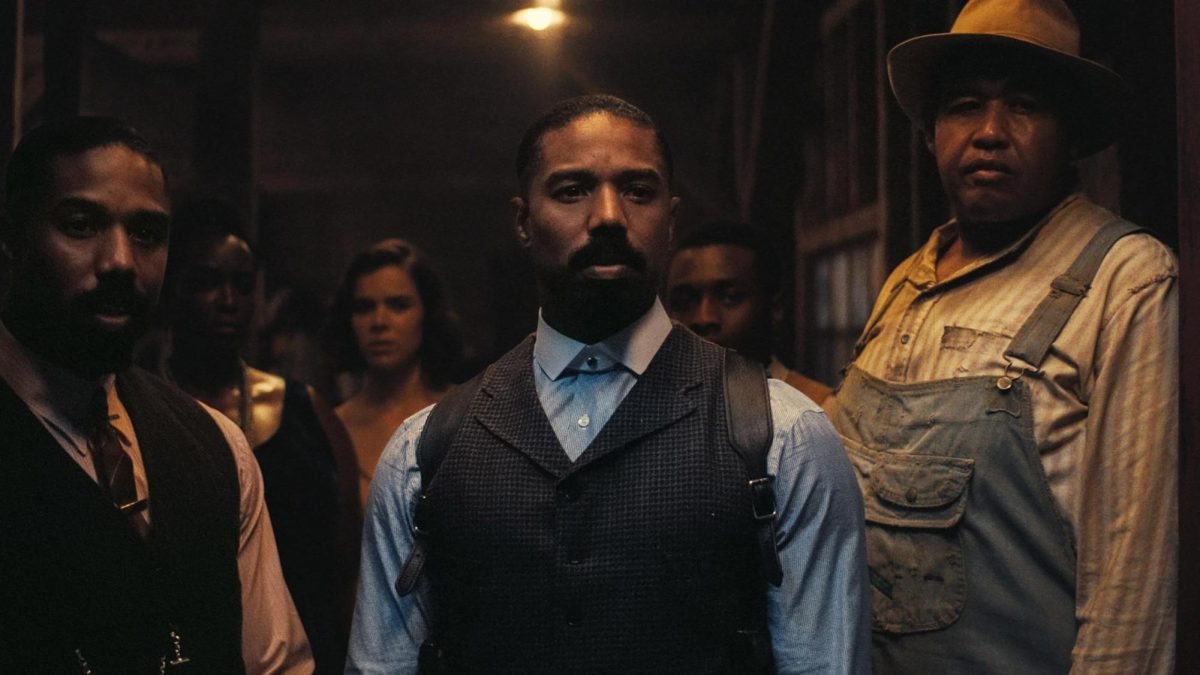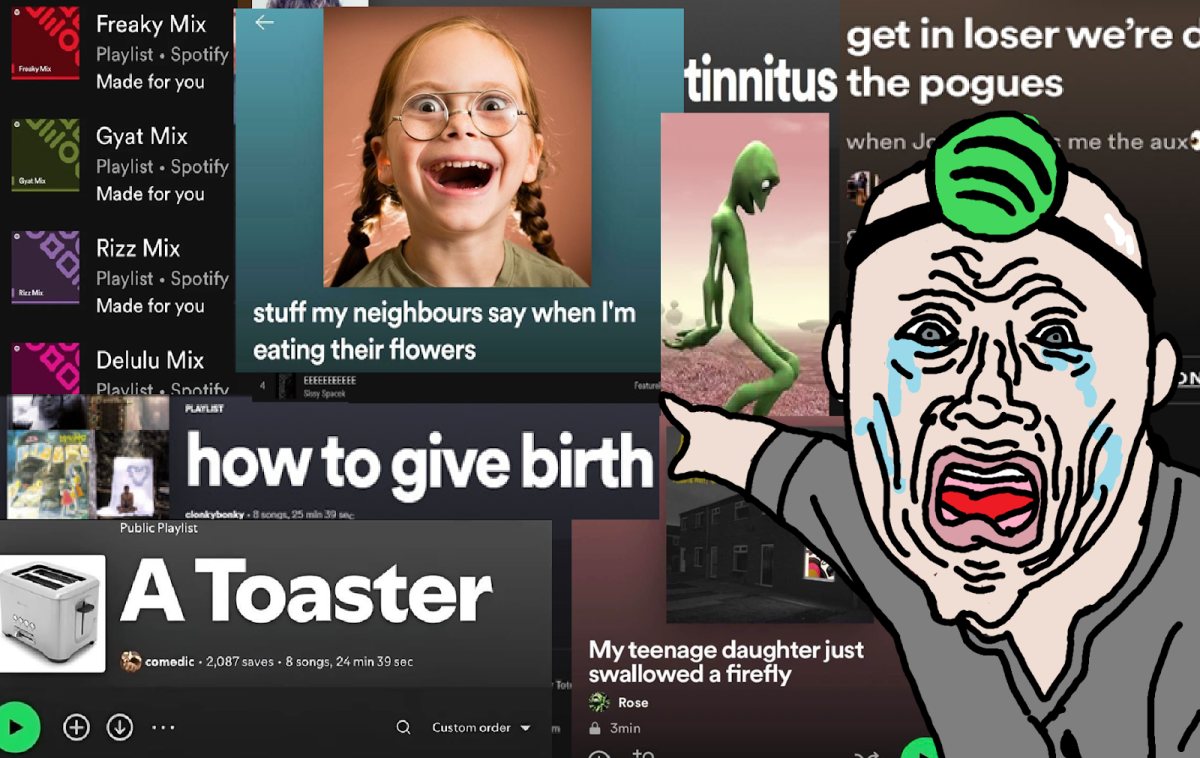Hollywood is in turmoil as a major labor strike, led by the Screen Actors Guild and American Federation of Television and Radio Artists (SAG-AFTRA) and the Writers Guild of America (WGA), has disrupted the entertainment world. The strike, which began on July 13, has left many film and TV productions in limbo, sparking tension with major studios and raising important questions about the future of the industry.
SAG-AFTRA and WGA represent around 160,000 workers in the film industry, and are demanding all the traditional items such as better pay, job security, and fair treatment for hair and makeup artists, stronger health and retirement benefits, but they are also insistent on improvements in areas like artificial intelligence use. The use of AI has been a hot issue in the entertainment industry, as it threatens to replace jobs of unknown actors and writers, and SAG-AFTRA and the WGA are looking to protect human-created work as well as maintain credit for writers and creators. Contracts had expired on June 30, 2023, prompting the strike as a way to gain leverage in negotiations.
The organizations are on strike against the American Motion Picture and Television Producers (AMPTP) trade association, which represents major film and TV studios. AMPTP’s goal is to reduce salaries for actors and writers, potentially increasing their profits from movie-making. Companies like Amazon/MGM, Apple, Disney/ABC/Fox, NBCUniversal, Netflix, Paramount/CBS, Sony, and Warner Bros. Discovery (HBO) are directly impacted by this labor dispute.
The strike has also impacted highly anticipated projects like Deadpool 3, Gladiator 2, and Mission: Impossible – Dead Reckoning, creating disappointment among eager fans. These films represent major studio investments, and the suspension affects not just release schedules but also the work of industry professionals, including actors, crews, and post-production teams. It also poses financial implications for studios due to lost revenue opportunities.
The strikes are centered primarily in Los Angeles and New York, the main hubs of the American entertainment industry. Los Angeles is home to iconic studios like Warner Bros. and Universal Pictures, while New York thrives in television production. These cities house a substantial portion of the film and TV workforce, and the protests target major studios represented by the AMPTP. The strikes also affect entertainment-related construction, even impacting Universal Studios in Los Angeles.
Disney’s CEO has publicly criticized SAG-AFTRA’s terms as “unreasonable” and “unrealistic,” underlining the tension between the unions and major studios. As the strike enters its second month, uncertainty prevails in the entertainment industry. The negotiations are ongoing, and the outcome will determine Hollywood’s future landscape.
Behind the glitz and glamour, this strike brings attention to important issues like workers’ rights and wealth distribution in Hollywood. Everyone is waiting anxiously for a resolution that benefits both the industry and its workforce. The entertainment world is facing unprecedented challenges, and the outcome of this labor strike will shape its future in ways we can’t yet predict.













